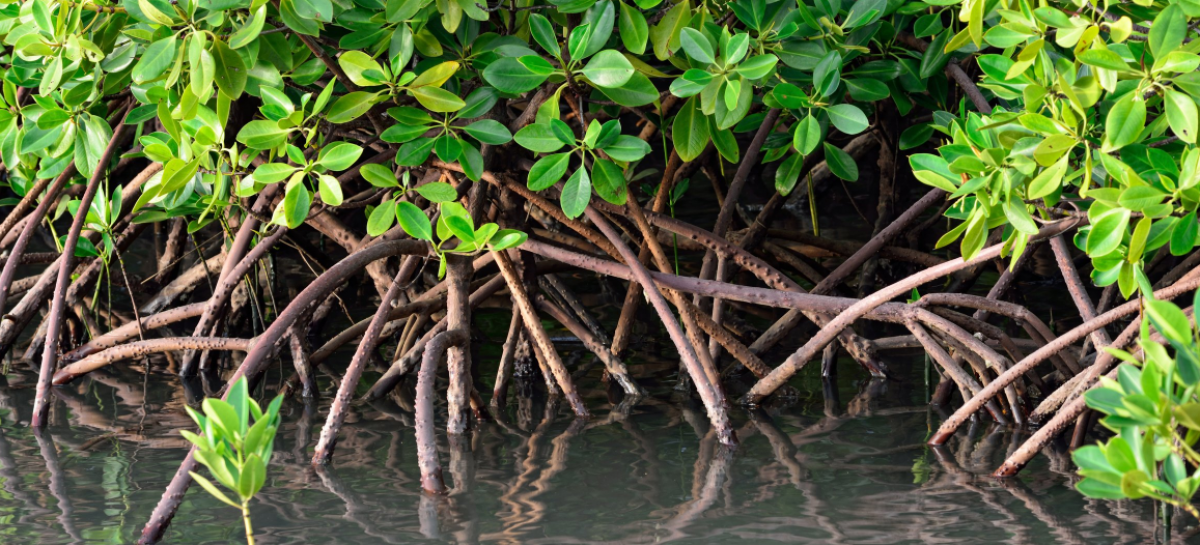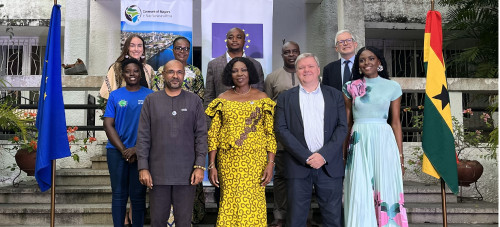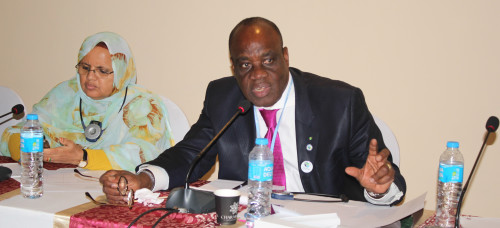Climate change adaptation projects are a priority for signatory city, Maputo
Published: 10 Dec 2021

The Covenant of Mayors in Sub-Saharan Africa (CoM SSA) programme, in Mozambique, co-financed by the European Union and the Spanish Cooperation, is supporting the municipality of Maputo in a pilot project for the reforestation and conservation of mangroves in an area prone to storms and flooding.
Mozambique's vulnerability to climate change is extreme; in fact, it is the country with the highest global climate risk index according to 2019 data. Mozambique has large coastal areas, such as the Maputo metropolitan area, which are exposed to frequent tropical cyclones, floods and droughts. However, Mozambique's coastline has a great ally in the fight against floods and cyclones, the mangroves. They protect the coastline with their dense root systems that act as natural buffers against cyclonic tides. In addition, they also provide a breeding habitat for marine biodiversity and play a crucial ecological role in fertilizing, stabilizing and regulating the microclimate.
But it's not all good news. Climate change is having two major effects on the coasts. Sea levels are rising and the chemical composition of the oceans is changing. In recent decades, 20-30% of mangroves in Central and Eastern Africa have disappeared due to several factors, in addition to those mentioned above. Add to this urbanization, pollution from industries, extraction of firewood, all of which are accentuated by population growth. If action is not taken now, it is highly likely that the rate at which these changes are occurring will exceed the adaptive capacity of mangrove forests and the species that live in them.
Maputo municipality takes steps to protect mangroves
For these reasons, Maputo, a signatory to the CoM SSA, as part of its climate action plan currently being developed, is considering the implementation of a pilot project aimed at the recovery of mangroves, in which the preservation of the coastal zone and environmental education are essential pillars of adaptation and sustainability.
In Katembe, the municipality of Maputo plans to regenerate 102 hectares of mangrove forest with plants that will be produced in the municipal nursery. Preservation of the area and environmental education are part of the project.
According to Nilza Zandamela, a technician at the Department of Environment and Sanitation in Maputo, "water pollution due to dumping, illegal construction and the use of space are the main threats to the mangrove in our municipality.
In addition to the reforestation of the Katembe area, Maputo plans to rehabilitate the sluice gates that control the inflow and outflow of tidal water in the mangrove area of Costa del Sol. In this way, it will be possible to properly control the flow of water that naturally arrives in the area and retain it for a longer period, thus allowing a controlled flooding of the whole area that favours the development of the mangrove.

education bridge will be created © AECID
The project also includes the creation of a pedestrian walkway in the mangrove area. The construction of a wooden walkway will allow people to get closer to the ecosystem, for environmental education activities, while preventing any damage potentially caused by the same visitors. As Maria Salazar, AECID's project coordinator, notes, "coasts such as Mozambique's need action to protect essential ecosystems such as mangroves and to combat climate change in the Western Indian Ocean.
With the support of the Covenant of Mayors, the municipality of Maputo is taking concrete steps to adapt to climate change. The municipality is balancing the needs of its people with the preservation of the ecological potential of mangroves by implementing sustainable management of these vulnerable ecosystems.





